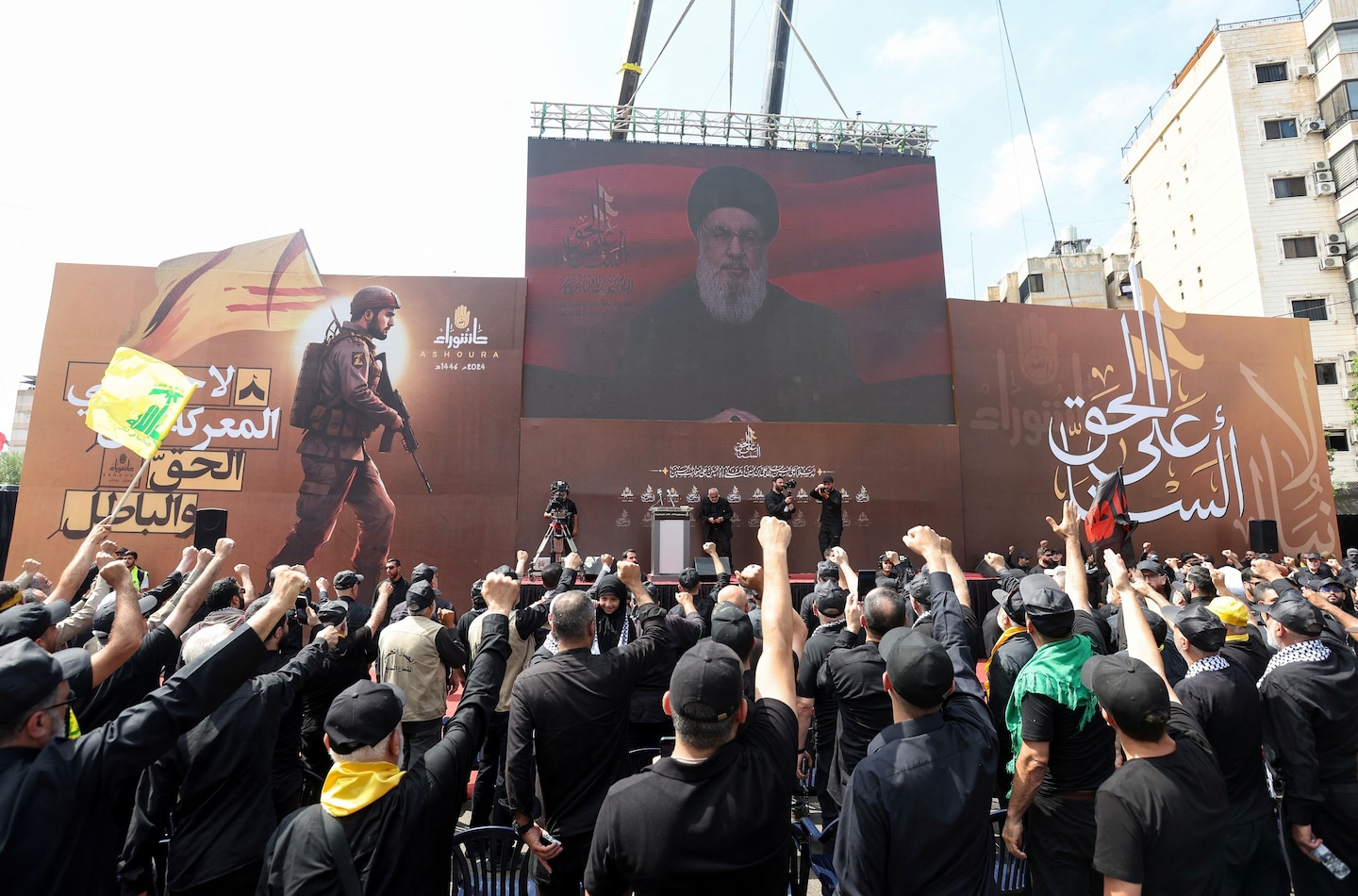“If Israeli tanks come to Lebanon, they will not only have a shortage in tanks but will never have any tanks left,” said Nasrallah. Listing towns and villages in southern Lebanon where he said Israeli strikes had killed civilians in recent days, Nasrallah vowed a stronger response if they continued. “The resistance missiles will target new Israeli settlements that were not targeted before.”
The fighting on the northern border of Israel began just hours after the Hamas-led Oct. 7 attack on Israeli communities outside the Gaza Strip, with Hezbollah launching rockets in support of Hamas. The violence has resulted in deaths on both sides, losses in agricultural and dairy farms and the evacuation of tens of thousands of people from border towns. Tensions soared last month, after Israel killed a senior Hezbollah commander and the Lebanese militant group responded with furious barrages of rocket fire.
Israeli military leaders have been drawing up plans for a Lebanon offensive for months, but both sides have said they would like to reach a diplomatic solution, as the United States and other countries try to broker a truce. Hezbollah has long maintained that it will not consider ending its attacks until there is cease-fire in the Gaza Strip.
“Our front will not end, as long as the aggression continues against the Gaza Strip, its people, and its resistance in its various forms,” Nasrallah said Wednesday. “The threat of war has not frightened us for 10 months, when Israel was at the height of its power, as it has said.”
Nasrallah struck a victorious tone in his speech, claiming that Israel’s economy was suffering from the attacks on shipping in the Red Sea by the Iranian-aligned Houthi movement in Yemen. He also maintained that thousands of Israeli soldiers have suffered debilitating injuries.
According to Israeli casualty tolls, more than 4,000 troops have been injured, over 600 of them seriously.
Exchanges of fire continued on the border overnight, with Israel reporting that Hezbollah launched roughly 65 projectiles into Israeli territory. Most were neutralized by air defenses, and no injuries were reported. Several Hezbollah targets were then struck by the Israel Defense Forces in southern Lebanon, the Israeli military said.
The exchanges of fire at the Israel-Lebanon border and Hezbollah’s threats come at a time when the Israeli military has been stretched thin across the different fronts.
Any ground incursion into Lebanon would pit the IDF against a larger and better equipped force in Hezbollah than it is currently facing in Gaza.
Here’s what to know
An organization of hostage families in Israel has demanded that the prime minister explain his reported comments in the Knesset that there was no need to rush a deal because “the hostages are suffering, but they are not dying.” The statement from the forum called the remarks “deeply hurtful to the hostages’ families but also factually inaccurate and dangerously irresponsible.” The group maintained that the hostages’ lives are in danger and a deal should be signed immediately.
Before Benjamin Netanyahu’s remarks, the parents of one hostage said Wednesday they felt optimistic about the return of their daughter, Liri Elbag, after talks with the Israeli government. “We had a meeting last week with Strategic Affairs Minister Ron Dermer. He told us that the conditions have ripened for a deal that could be actualized,” said Eli Elbag, Liri’s father. “Dermer sent us out optimistic.”
Noa Argamani, a hostage rescued in June, will be joining Netanyahu on his trip to the United States next week to address Congress, Israel media reported. Argamani will be accompanied by her father as well as family members of other hostages and victims of Hamas’s Oct. 7 attack.
Hamas and other militant groups planned and carried out a “systematic” assault against Israeli civilians on Oct. 7, Human Rights Watch said in a report released Wednesday after months of interviews with survivors, hostages, first responders and other witnesses. The rights organization said the attack involved various war crimes and crimes against humanity, including “deliberate and indiscriminate attacks against civilians,” the use of civilians as human shields, and cruel and inhumane treatment.
At least 38,794 people have been killed and 89,364 injured in Gaza since the war started, the Gaza Health Ministry said. It does not distinguish between civilians and combatants but says the majority of the dead are women and children. Israel estimates that about 1,200 people were killed in Hamas’s Oct. 7 attack, including more than 300 soldiers, and it says 326 soldiers have been killed since the start of its military operations in Gaza.
Lior Soroka and Shira Rubin in Tel Aviv, Kareem Fahim and Mohamad El Chamaa in Beirut, and Bryan Pietsch contributed to this report.
#Hezbollahs #Hasan #Nasrallah #threatens #attacks #Israel,
#Hezbollahs #Hasan #Nasrallah #threatens #attacks #Israel
